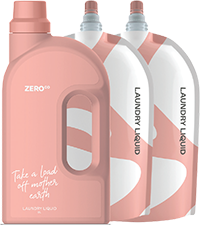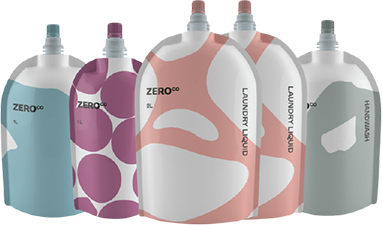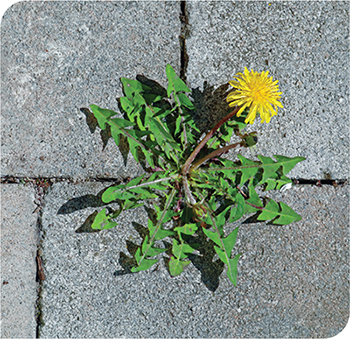
Haven Extras Winter 2021

Clean dishes, happy fishes
Zero Co Australia is on a mission to make a difference in our planet’s enormous plastic waste problem. Their intention is simple: to ‘unrubbish’ the world by stopping the production of new single-use plastic while also cleaning up the plastic that’s junking up our oceans.
Zero Co deliver great home-cleaning and personal-care products direct to your door, minus single-use plastic. How it works: empty dispensers (made from plastic rubbish pulled from the ocean) arrive to your door and are for you to keep; you fill them with the contents from a matching reusable pouch (made from plastic diverted from landfill). Once you’ve collected enough of the empty pouches, you send them back (for free) to Zero Co in a reply-paid postage satchel, which cleans and refills it, then sends it on to the next customer – over and over again.
Since launching last year, Zero Co has removed more than 6,000kg of plastic rubbish from the ocean – that’s the equivalent of more than 500,000 water bottles worth of plastic. And they’ve set themselves an audacious goal for 2021: to collect 21 tonnes of ocean bound waste and turn it into their forever bottles.
It’s super simple: you order online, they deliver, you return (for free), they refill. Wave bye-bye to single-use-plastic at your place.




Paver weeds begone – au naturel
Forget spraying environment hurting herbicides around your house – no one wants nasty chemicals in their yard or leaching into the water table. Instead try this sure-fire solution to kill the pesky weeds that pop up between brick and stone paving. It not only knocks the weeds dead, but also retards the soil beneath the paving, helping prevent future growth.
Simply mix together:
- 2 cups of salt
- 9 litres of white household vinegar
- A squirt of dishwashing liquid
Then pour the solution directly onto the surface of the weeds.


How does your winter garden grow?
With cooler weather now upon us, summer salads take a backseat as our tummies start yearning for food that warms and sustains. Whether a gung-ho gardener or a novice that wants to give it a go, here are some of our favourite winter vegies that grow in Australia in coming months. If confidence in growing your own isn’t high and your local farmers market is your go-to instead, you’ll like our ideas for injecting some winter veg into your culinary repertoire.
Broccoli and cauliflower: take the family favourite cauliflower cheese topped with luscious cheesy bechamel sauce to another level by combining the cauli with its Brassica cousin, the broccoli. Broccoli pairs with cheese sauce just as well as cauliflower, and when the two are put together it’s a match made in heaven.
Spinach and silverbeet: Popeye knew how good this leafy green was, and winter is the time for it to shine. Its versatility is excellent – try it in a stir fry, through an Indian curry, in hearty soups, wilted through pasta or pair it with salty feta by making a gorgeous Greek spanakopita pie topped with flaky filo pastry. Yum!
Carrots: while they can grow all the year round, carrots are particularly well suited to warming winter soups, hotpots and roasts. Or for a decadent alternative to the ever-popular potato bake, pair the humble carrot with another winter root vegetable, the parsnip. Slice both finely and layer with gruyere cheese, cream, a little crushed garlic and salt and pepper before baking in a moderate oven.
Beetroot: bring the rainbow to your table with delicious, earthy beetroot. A winter vegetable superstar, warm roasted beetroot loves to be paired with a soft goats cheese and also marries well in a warm salad with chickpeas and toasted almonds. And for those that like to bake, don’t forget that old classic the beetroot chocolate cake – when combined with bittersweet chocolate, beetroot adds a rich, super moist decadence that’s hard to beet.
Any advice contained in this article is of a general nature only and does not take into account the objectives, financial situation or needs of any particular person. Therefore, before making any decision, you should consider the appropriateness of the advice with regard to those matters. Information in this article is correct as of the date of publication and is subject to change.
